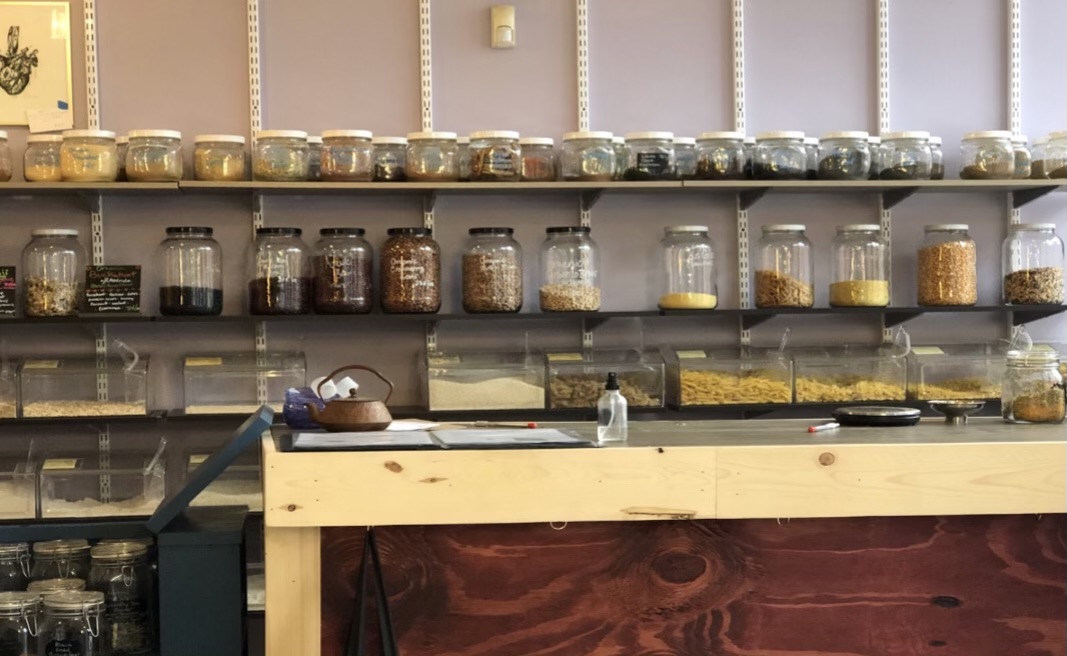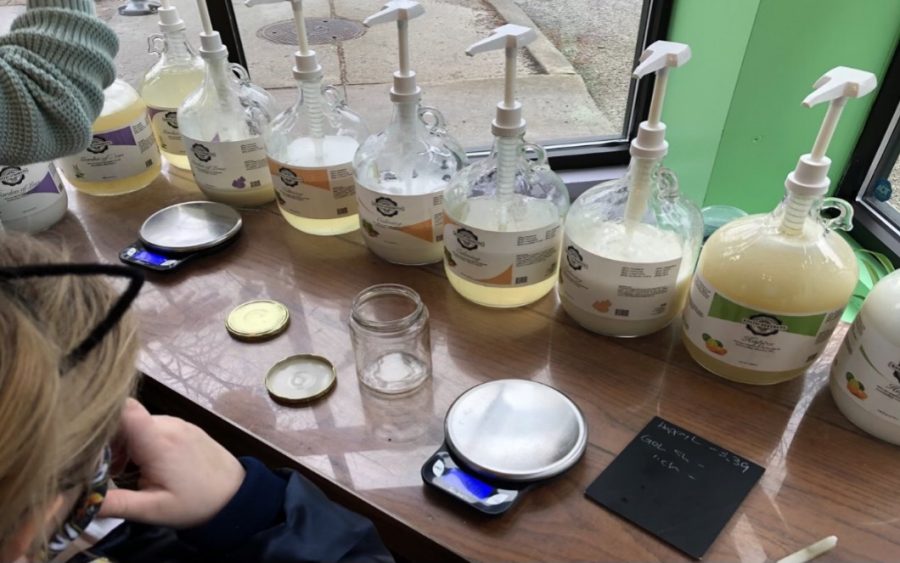Caring Consumerism: A Look Inside Sustainable Shopping
Buying soaps is a bit different at Eco and the Flamingo. Their method encourages self-sustainability.
April 16, 2021
According to a study done by the EPA, consumer culture is responsible for 43% of the United States’ greenhouse gas emissions. But this number is only growing larger, and our climate crisis is only getting worse. Here is how consumers can help save our planet.
Consumers can reduce their carbon footprint and help the environment by shopping sustainably. First, let’s define sustainability.
Sustainability is living on Earth in a way that conserves resources while using them in a way that will not deprive future generations of said resources. There are three parts to sustainability: economic, environmental, and social dynamic. Shopping sustainably relies heavily on the economic and social aspect of sustainability.
Ryan Miller is the president of Farmer’s Hen House Inc., a wholesale food company based in Iowa and Chicago. The mission statement of Farmer’s Hen House Inc. is, “Our Environment is of the highest priority. That is why we are committed to keeping our carbon footprint low…We believe that what we put into the environment is what we get out of it, and for us, as farmers who depend upon a healthy and stable environment for our livelihood, caring for the environment is caring for us, our families, our hens, our eggs, and for our customers…”
Being on the business side of the wholesale food industry, Miller knows, “It can be easier to do things in a less sustainable way, but consumers vote with their dollar. The best way to push sustainable shopping is to do it until companies start to change.”
“Money spent causes reactions,” Miller continued. This is how to vote with your dollar: educating yourself, buying organic, and trying to shop “zero waste.”
Miller says humans are creatures of habit, and a common theme while shopping is to grab the brands you know. Ironically, shoppers might not know much about their go-to brands. A little research could inform consumers on brands that are more ethical, more sustainable, and healthier.
Buying more organic items creates higher demand and more land for those products. This puts a higher monetary value on farming land, which places a higher value on our planet, and the health of it. These are all good things. But in areas where organic food might not be available, like the food deserts of Chicago’s south-side, this might be hard to achieve.
In areas where grocery stores are easily accessible, like Ravenswood, the options for organic food increase. Within walking distance of Lincoln Square in West Ravenswood, there is an Aldi, Jewel-Osco, Mariano’s, Best-Buy Food & Liquor, River Valley Market, and Eco and the Flamingo.
People have access to chain grocery stores, small business/neighborhood stores, and zero-waste stores. Zero-waste stores are packaging-free and usually support a holistic, sustainable lifestyle concept with local and organic products. Eco & the Flamingo is one of these zero-waste stores.

Eco & the Flamingo buys wholesale products like shampoo, conditioner, soap, pasta, dried fruit, herbs and spices, grains, nuts, and coffee beans. Then they place the product in a reusable bag or recycled jar and measure it by weight. Zero-waste stores have a lot to offer because not only do they promote sustainability and are good for the environment, but they are also sourced locally and ethically.
This comes at a price, however. Shopping organically and sustainably can weigh heavily on your wallet. “The downside to zero-waste products is that they can be pretty expensive and you have limited choice in produce,” said Grace Otte, who for this project tried shopping zero-waste. For example, Eco & the Flamingo does not sell perishable goods, like meat, fresh fruits, and vegetables.
Specifically, zero-waste stores are not the only way to shop sustainably. Consumers can try to go zero-waste at their local grocery store as well. Using techniques such as bringing reusable grocery bags or mesh produce bags, avoiding excessively packaged items, buying organic, and making sure the brands you reach for are ethically and environmentally sound, a consumer is able to shop sustainably.
While shopping sustainably might seem like a hassle, it is totally worth it. Resources involved in food production, like land for farming, are not infinite. “It is important to treat the land well so we have it for another 100 years. We only have what we have,” Miller commented.
Consumers can break the cycle of wasteful shopping habits by simply being more conscious. Taking a second to look at the options before you or doing a quick google search makes a difference in the long run.
Miller closes with, “In my 17 years working for Farmer’s Hen House, I have seen an increase in consumers caring about what they’re buying.” And with more people thinking about the products they buy, there is hope for our future

